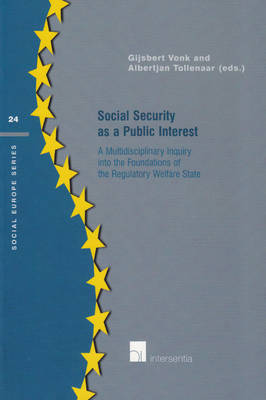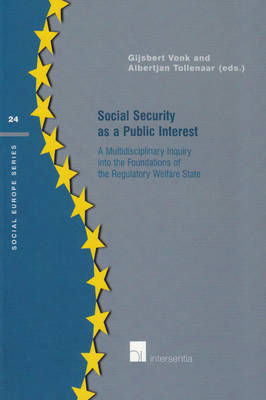
- Retrait gratuit dans votre magasin Club
- 7.000.000 titres dans notre catalogue
- Payer en toute sécurité
- Toujours un magasin près de chez vous
- Retrait gratuit dans votre magasin Club
- 7.000.0000 titres dans notre catalogue
- Payer en toute sécurité
- Toujours un magasin près de chez vous
Social Security as a Public Interest
A Multidisciplinary Inquiry Into the Foundations of the Regulatory Welfare State Volume 24
Gijsbert Vonk, Albertjan TollenaarDescription
Our social security systems face many challenges. Economic crises, the ageing of the population and changing employment patterns call for a reorientation of policies. In the last few decades the introduction of private elements has often been advocated as a way forward. This privatisation gives rise to new questions. What are the public interests that call for government responsibility? What can be regarded as the public interest in our social security systems? What are the mechanisms that safeguard these interests and what is the role of public and private regulation? This multidisciplinary study approaches these questions from the point of view of economics, public administration, law and philosophy. The major conclusion is that a strict public-private distinction is a dead end. It is important that we gain more understanding of mixed public-private governance structures. This requires, first of all, further research into the normative and theoretical foundations of 'social markets'.
Spécifications
Parties prenantes
- Auteur(s) :
- Editeur:
Contenu
- Nombre de pages :
- 230
- Langue:
- Anglais
- Collection :
- Tome:
- n° 24
Caractéristiques
- EAN:
- 9789400001107
- Date de parution :
- 23-09-10
- Format:
- Livre broché
- Format numérique:
- Trade paperback (VS)
- Dimensions :
- 160 mm x 240 mm
- Poids :
- 408 g

Les avis
Nous publions uniquement les avis qui respectent les conditions requises. Consultez nos conditions pour les avis.






